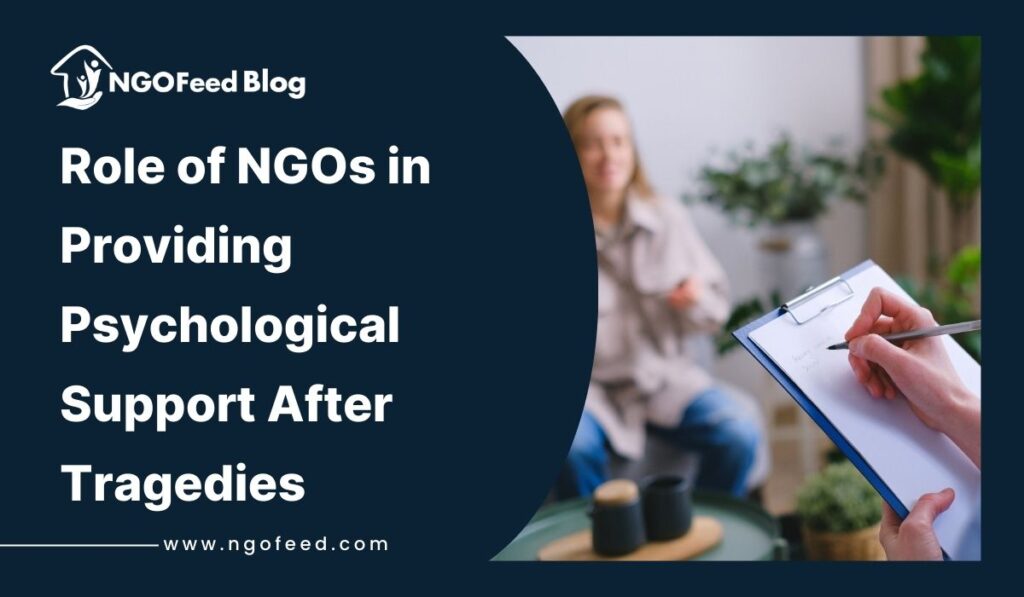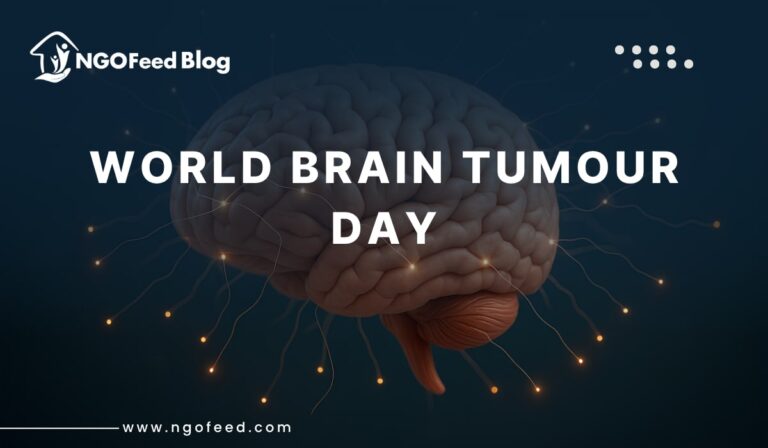Role of NGOs in Psychological Support After Tragedies: Mental health is a vital aspect of overall well-being that encompasses emotional, psychological, and social factors. It influences how individuals think, feel, and behave daily. Good mental health allows people to cope with stress, build relationships, and make sound decisions. In contrast, poor mental health can lead to challenges that impact personal and professional aspects of life.
In today’s fast-paced world, mental health issues have become increasingly common due to factors like stress, lifestyle changes, societal pressures, and the growing digital influence. Understanding mental health and promoting awareness is crucial to breaking stigmas and ensuring individuals receive the support they need.
The following essays aim to explore the importance of mental health in different lengths, catering to various audiences. Whether it’s a brief insight or a comprehensive discussion, these essays shed light on the role mental health plays in shaping a balanced, fulfilling life.
Table of Contents
Understanding Trauma: Role Of NGOs in Psychological Support
Trauma is defined as an emotional response to a distressing event or series of events that overwhelm an individual’s ability to cope. The American Psychological Association (APA) describes trauma as resulting from experiences that are perceived as life-threatening or that cause significant emotional distress.
Also Read: Transparency in Nonprofit Operations
Trauma can be categorized into several types, including acute trauma, chronic trauma, and complex trauma. Each type of trauma has its unique characteristics and implications for the affected individual.
Types of Trauma
Acute trauma refers to a single, isolated incident, such as a car accident or a natural disaster. This type of trauma can lead to immediate psychological distress, but individuals may recover relatively quickly with appropriate support. Chronic trauma, on the other hand, involves repeated and prolonged exposure to distressing events, such as ongoing domestic violence or childhood abuse.
This type of trauma can have long-lasting effects on an individual’s mental health and well-being. Complex trauma is often associated with multiple traumatic events, particularly those that occur in the context of interpersonal relationships, such as long-term emotional abuse or neglect.
Individuals who experience complex trauma may struggle with a range of psychological issues that are more difficult to address due to the cumulative nature of their experiences.
Also Read: Role of ICARDA in India
Prevalence of Trauma: Role Of NGOs in Psychological Support After Tragedies
The prevalence of trauma is alarmingly high. According to the National Institute of Mental Health (NIMH), approximately 70% of adults in the United States have experienced at least one traumatic event in their lifetime.
Furthermore, about 20% of those who experience trauma develop post-traumatic stress disorder (PTSD), a condition characterized by persistent and intrusive memories, avoidance behaviors, negative changes in mood and cognition, and heightened arousal. The widespread nature of trauma underscores the importance of understanding its effects and developing effective interventions to support those affected.
The Psychological Effects of Trauma
The psychological effects of trauma can manifest in various ways, affecting an individual’s emotional, cognitive, and behavioral functioning. These effects can be immediate or delayed, and they can vary significantly from person to person. The diversity of responses to trauma highlights the need for personalized approaches to treatment and support.
Also Read: Role of UNESCAP in India
Emotional Effects
One of the most common emotional responses to trauma is the experience of intense fear, anxiety, and helplessness. Individuals may also experience feelings of sadness, anger, and guilt. These emotional responses can lead to mood disorders, including depression and anxiety disorders.
Additionally, individuals may experience emotional numbing, where they become detached from their feelings and the world around them. This emotional disconnection can hinder their ability to engage in relationships and enjoy life, further complicating their recovery process.
Also Read: Role of NGOs in Sustainable Development
Cognitive Effects
Trauma can significantly impact cognitive functioning. Individuals may experience intrusive thoughts, flashbacks, and nightmares related to the traumatic event. These cognitive disturbances can lead to difficulties in concentration, memory problems, and impaired decision-making abilities.
Furthermore, trauma can alter an individual’s worldview, leading to feelings of distrust, hopelessness, and a diminished sense of safety. Such cognitive distortions can perpetuate a cycle of negative thinking that makes recovery more challenging.
Behavioral Effects
Behaviorally, trauma can lead to a range of maladaptive coping mechanisms. Individuals may engage in substance abuse, self-harm, or other risky behaviors as a means of coping with their emotional pain.
Additionally, trauma can result in social withdrawal, avoidance of reminders of the trauma, and difficulties in forming and maintaining relationships. These behavioral changes can isolate individuals further, making it difficult for them to seek help and support from others.
Also Read: Role of WHO in Healthcare
How Do NGOs Lend a Hand?
1. Counseling Services:
Many NGOs offer individual and group counseling sessions to help people cope with emotional and psychological distress. These services are often provided by trained mental health professionals or trained volunteers.
2. Psychoeducation:
NGOs in India often conduct workshops and training sessions to educate individuals about mental health issues, coping strategies, and available resources. This helps to reduce stigma and empower individuals to seek help.
3. Support Groups:
NGOs may facilitate support groups for specific populations, such as survivors of domestic violence, refugees, or individuals dealing with grief. These groups provide a safe space for sharing experiences and receiving emotional support.
4. Crisis Intervention:
In times of emergencies or disasters, NGOs may deploy crisis intervention teams to provide immediate psychological first aid, helping individuals stabilize and begin the healing process.
Also Read: Role of NGOs in Conservation and Biodiversity Protection
5. Community Engagement:
Many NGOs work on building community resilience by promoting social connections and supportive networks, which are vital for mental well-being. Community engagement initiatives can help reduce isolation and foster a sense of belonging.
6. Advocacy and Awareness:
NGOs often advocate for mental health awareness and policy changes that enhance access to psychological support services. They may work to influence governments and other stakeholders to prioritize mental health in policy and funding.
7. Training and Capacity Building
Some NGOs focus on training local professionals or community members in basic mental health support and counseling techniques, thereby increasing the availability of support within the community.
8. Research and Data Collection:
NGOs may conduct research to better understand the psychological needs of specific communities, which can inform their programming and contribute to the broader field of mental health.
Also Read: Role of NGOs in Environmental Protection
9. Collaboration with Other Sectors:
NGOs frequently collaborate with healthcare providers, educational institutions, and social services to create a more integrated approach to mental health support.
Conclusion
By addressing the psychological needs of individuals and communities, NGOs help to improve overall well-being and resilience, contributing to healthier societies.









